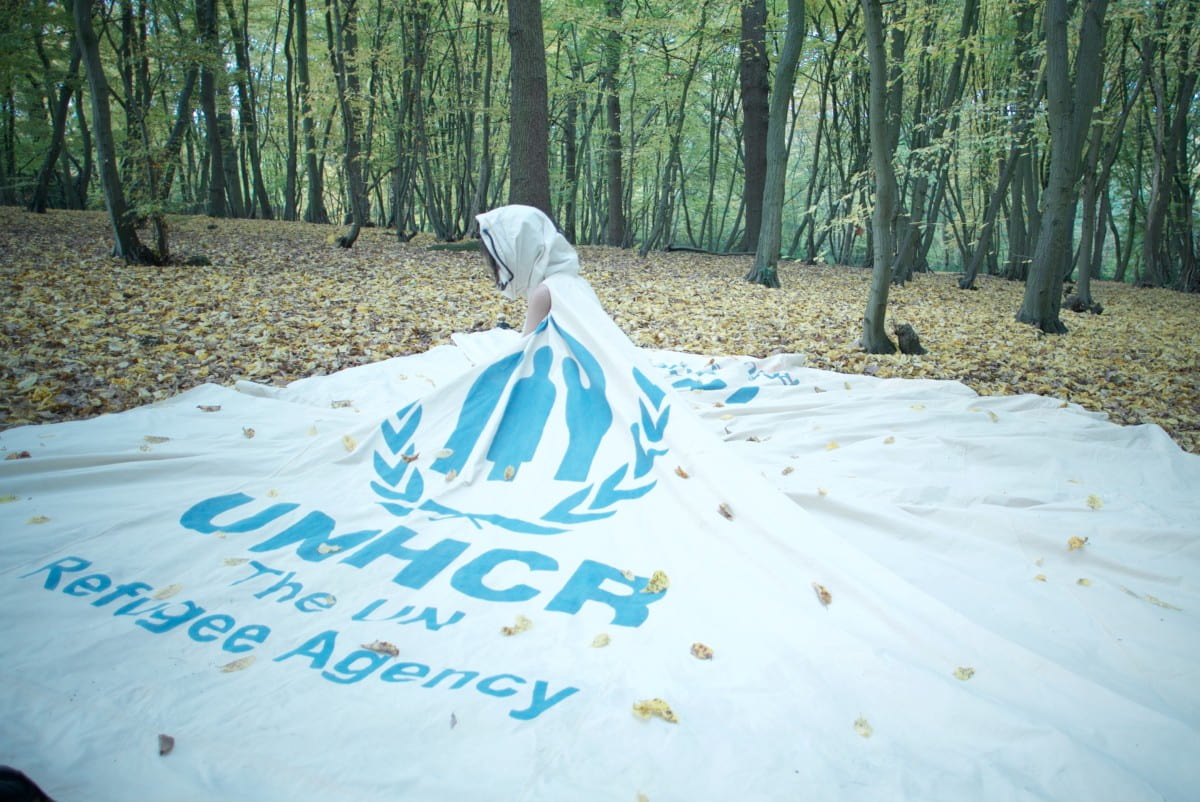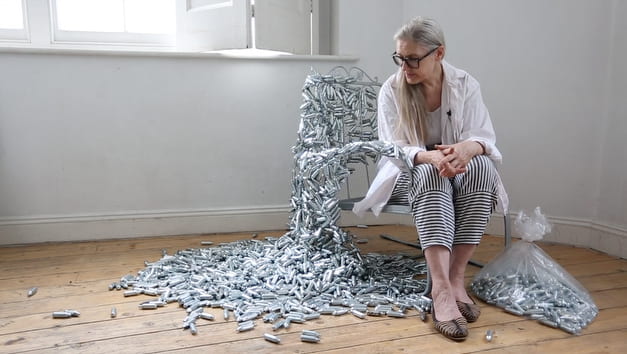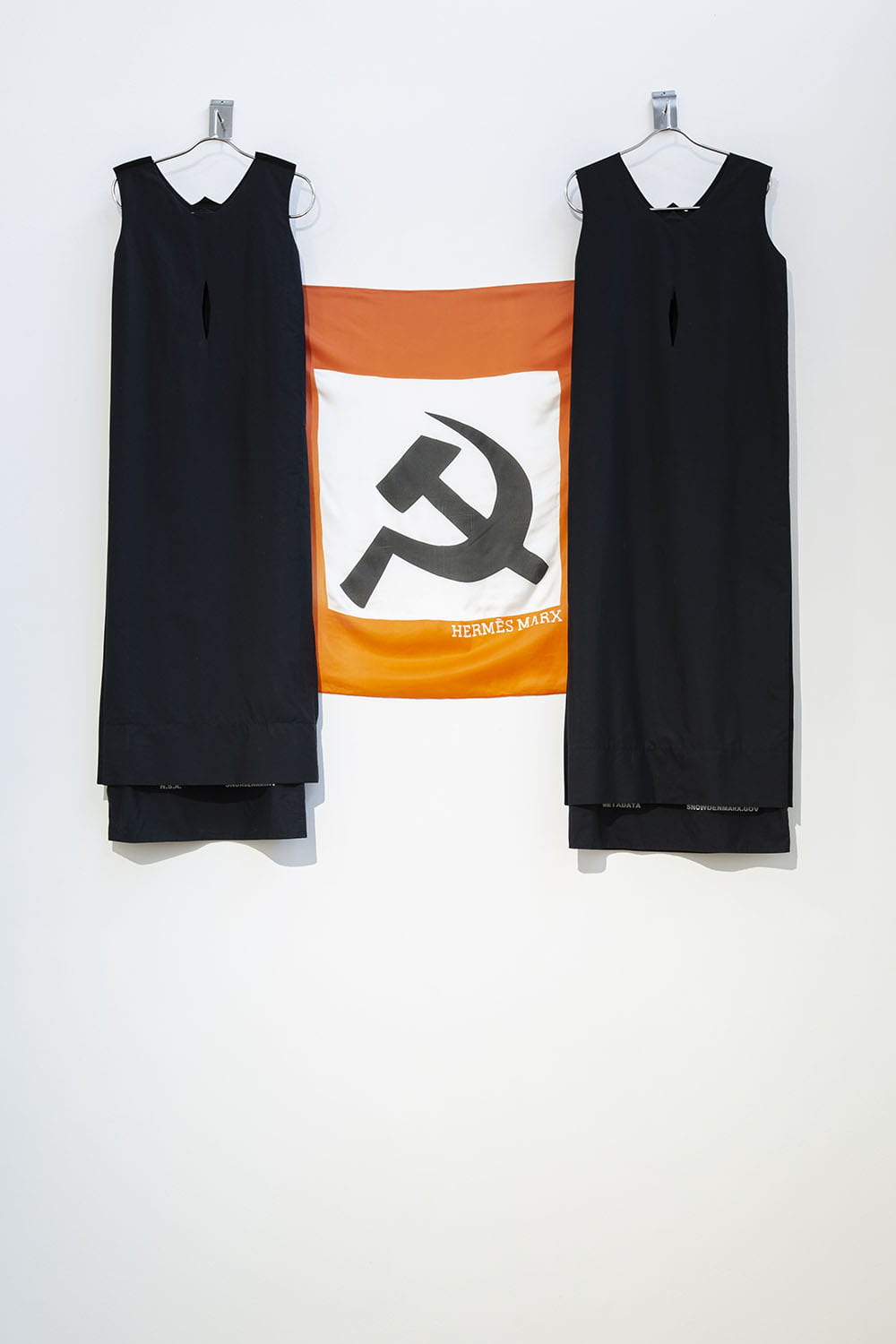Centre for Sustainable Fashion sat down for a quick interview with Orsola de Castro, Founder and Creative Director of Fashion Revolution during Fashion Revolution Week 2019 to hear her thoughts on industry changes; brand transparency, her vision for the future of Fashion Revolution and why remembering that loved clothes last is just as important as asking brands, “Who made my clothes?”.
There are still plenty of events to take part in during this years Fashion Revolution Week and of course to show your label and ask brands #whomademyclothes.
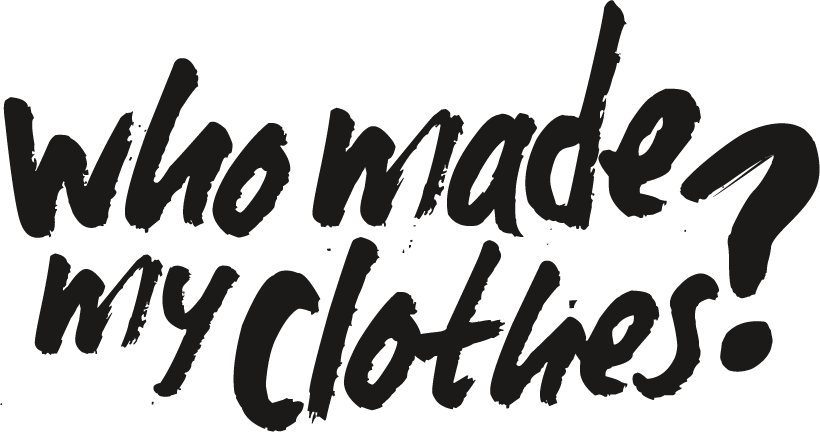
CSF: 6 Years on from the collapse of the Rana Plaza factory, do you feel things have changed in the way our clothes are sourced, produced and consumed?
Orsola: It’s about the stark reality of the fact that to certain extent things have changed such as public opinion, such as the understanding that the consumer has over the fact that clothes are made by people in exploitative conditions, such as the fact that we’ve seen extinction rebellion over the last few weeks, so general awareness over all industry and the impact of all industry is at a very high point. However, we all know that environmental and human rights abuses are still the order of the day, so whatever it is that has changed is not enough.
CSF: You’ve just released the Fashion Transparency Index for 2019, do you have any recommendable actions for brands to take to improve their scores for 2020?
Orsola: We don’t really recommend anything to brands except that of disclosing. We want their public disclosure, we want to see their publicly published information. However, we don’t have a particular call to action to brands as a result of the fashion transparency index. We’re in this kind of strange place where we don’t really thank anybody and we don’t really shame anyone, we just want to see the stark reality of things via our index, so there is no particular recommendation for any individual brand.
It’s the public disclosure, transparency and public disclosure. Transparency is an odd thing because it’s only really the starting point, the first step, transparency doesn’t necessarily lead to best practice but at least it leads somewhere. If there is a call to action, that is a call to action to all brands, it’s that of providing comparable, measurable and verifiable information to their customers in an understandable and digestible way.
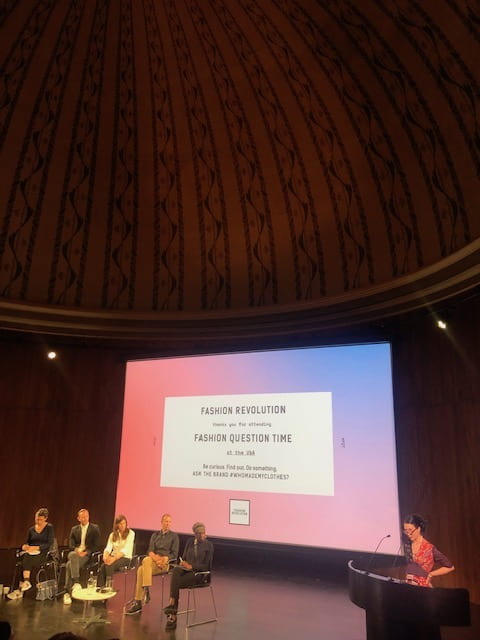
Time at the Victoria & Albert Museum
CSF: If we want fashion customers to change their mindsets and make more responsible purchasing choices, what is the best way to approach that mindset change?
Orsola: I don’t think we can think of one overarching solution, fashion is built on being for individuals, so what works for me isn’t necessarily going to be what works for you. On a personal level, we at Fashion Revolution advocate very much for the caring of clothes as well as the respecting the people that made them, the two things go hand in hand. We’ve got a bit of a catchphrase this year, which is ‘it’s just as important to ask who made my clothes as it is to remember that loved clothes last’. Our wardrobe is in the fashion supply chain, whether you act retrospectively or forward thinkingly, whatever it is, whatever rocks your doodle, we are as citizens, with in the fashion supply chain and therefore we have not just an opportunity to act but the responsibility to do so.
CSF: What’s your vision for the future of Fashion Revolution?
Orsola: Well I always say the same thing, we shouldn’t be needed, but I don’t see that happening for a while, but to be honest with you there is a vision for fashion revolution. We have a vision that I am particularly enamoured with, which is Fashion Open Studio, the opposite in a way of what we are doing right now, because Fashion Revolution and campaign right now is so social media, while I really love close intimate gatherings of people and I think at the minute we’re really looking at how to explore that, expand on that, but also support those young individuals and designers that are not just designing amazing collections, but also creating know systems to make and bring clothes to market, so that’s a space that we’re moving in to and that I’m passionate about.
An interview by Elliot Todd for the Centre of Sustainable Fashion.

